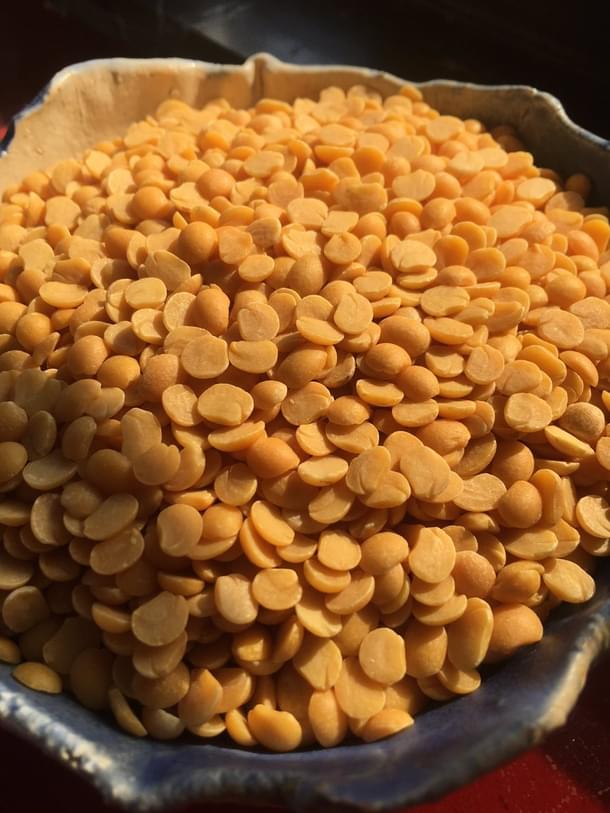Politics
Strengthening Institutions: The Role Of Competitive Commission Of India In Tackling The Menace Of Cartelisation
M R Subramani
May 01, 2019, 04:02 PM | Updated 04:02 PM IST
Save & read from anywhere!
Bookmark stories for easy access on any device or the Swarajya app.


On 16 March this year, officials of the Competitive Commission of India (CCI) conducted raids on units of global commodities trader Glencore Inc. Two other firms - Export Trading Group of Africa and Edelweiss Group - were also raided in connection with a probe into alleged collusion in raising prices of pulses during 2015-16.
The raids were conducted as part of CCI’s investigation into complaints that these firms had formed a cartel to fix prices of pulses while importing and selling them in the Indian market. During 2015-16, the country faced a supply shortage in pulses as deficient rainfall affected their production.
During this period of short-supply, the Government allowed private firms to import and locally sell pulses as part of measures to control higher prices and inflation. But the prices of arhar (tuar/pigeon pea) and urad (black matpe bean) surged to nearly Rs 200 per kilogram in retail outlets.
Thomson Reuters quoted Government sources as saying that cartelisation had led to the surge in prices of pulses and CCI had begun its investigation in January this year. The probe will also try to find out if cartelisation still continues despite prices being stable now.
CCI officials have perused company records and documents from these firms and authorities at these units have been questioned. World Finance reported that a Glencore spokesperson confirmed the raid and added that the company was fully committed to compliance with all laws and regulations besides cooperating with the investigating officials.
Wheat price surge during a shortage in 2006-07
This raid reminds one of a similar shortage of wheat that India faced during 2006-07. Then, the country’s wheat production was below 80 million tonnes and supply was unable to match demand.
In view of the shortage, India decided to import wheat. Between January 2005 and December 2007, nearly nine million tonnes of wheat was imported. However, India’s decision to import wheat led to a sharp spike in global wheat prices.
At that time, wheat futures traded on the National Commodities and Derivatives Exchange (NCDEX) indicated the possibility of a shortage. NCDEX Chief, P H Ravikumar flagged the then Government’s attention to the trend and the fears of an impending shortage but no action was taken.
Ironically, when the prices surged, one of the first measures that the Manmohan Singh Government took was to ban wheat futures trading in 2007!
As mentioned before, India’s entry in the global wheat market resulted in a surge of the food-grain’s price. In 2007, global wheat prices doubled and ruled at least 30 per cent higher than domestic prices.
In January 2008 the Government-owned STC Ltd. scrapped a tender to import 350,000 tonnes of wheat after three agencies - Glencore, Cargill Inc. and Toepfer International - quoted astronomical prices between $459 and $599 a tonne. According to the Food and Agriculture Organisation, wheat price index zoomed from 145 in 2006 to 216 in 2007 and 371 in 2008.
So why relate the recent CCI raids with the surge in wheat prices in 2006-07? This is because probably had the commission been working then, these imports, too, could have come under scrutiny.
Origins of the Competitive Commission of India
It was the National Democratic Alliance government of Atal Bihari Vajpayee that passed The Competition Act in Parliament in 2002 and CCI was established in October 2003. The United Progressive Alliance Government of Manmohan Singh further strengthened the Act through amendments in 2007. And CCI became fully functional from May 2009.
However, the CCI really came into its own in December 2010 when it conducted an enquiry to find out if there was any cartel behind onion prices rising to a record high of over Rs 100 per kilogram. The probe ended with the commission saying that it did not have sufficient evidence though it was clear that a group of traders in Nashik were behind the rise.
CCI interventions over the past few years
In June 2012, the CCI hogged the limelight when it imposed a fine of Rs 6,300 crore on cement companies for cartelisation. The commission said cement companies met regularly to fix market prices, market share and even manage supplies.
The cement companies appealed against the fine and the appeal is currently pending in the Supreme Court, which has stayed the penalty.
In January 2013, the CCI came to the rescue of the consumer when it modified clauses in agreements entered into by DLF India and apartment buyers. The intervention was termed as a landmark judgement that would benefit millions of apartment owners in the country.
In February 2013, the Commission fined the Board for Control of Cricket in India (BCCI) Rs 52.20 crore, finding fault with the BCCI for dictating terms in commercial activities of the Indian Premier League teams.
In March 2014, the Competition Commission came out with a ruling that curbed the intervention of film artistes associations in film making, though the judgement pertained mainly to Malayalam cinema.
CCI rulings post May 2014
It could be by design or sheer coincidence that the CCI has come out with 25 rulings that benefits consumers since the Narendra Modi Government took over in May 2014.
Some of the important rulings are penalty of Rs 2,544 crore on 14 Indian car manufacturers for not supplying spare parts to service agencies outside the purview of the respective car manufacturers’ service chains, penalising airlines for fixing fuel surcharge on air cargo and pulling up Google for bias in its search tool.
The search operations at Glencore and two other companies are the latest in the CCI’s efforts to protect consumers interests. The commission has been playing a silent role in pulling up cartels and price fixers, while it has also been empowered to grant permissions for mergers and deals.
Loopholes that need to be plugged
The Competition Act, no doubt, is proving to be a blessing in disguise in protecting consumers interests. But there are still loopholes that dilutes some of the stringent provisions of the Companies Act. The loopholes need to be plugged.
For example, the Competition Commission of India (Lesser Penalty) Regulations, 2009 allows exemption of penalty to a violator if he/she, who is part of a cartel, makes a full disclosure. Some of the provisions of this amendment gives CCI the discretion to decide on the reduction in penalty, including total exemption.
Also, there are ambiguities in the provisions that discourage whistle-blowers coming out in the open to provide full details of a cartel operation. Sometimes, the violating party that comes forward first to provide details isn’t given full exemption from the penalty, whereas someone who admits to cartelisation at the fag end of the enquiry gets total exemption from penalty.
According to the law firm of Singh & Associates, the leniency provisions need to be reviewed and cleaned up. An article in The Hindu pointed out that the CCI didn’t go into the allegations of predatory pricing against Uber (while it did against Ola) saying it didn’t seem to be the dominant player in the market.
Similarly, CCI hasn’t looked at the functioning of e-commerce companies, small or big. These companies get away with predatory pricing to capture market share. Some countries like South Korea have provisions to check such unhealthy practices.
The new Government that will come to power after the elections will have to look into these loopholes and come out with provisions that will arm the CCI to equally protect consumers and companies from unfair and unhealthy competitions.
M.R. Subramani is Executive Editor, Swarajya. He tweets @mrsubramani





